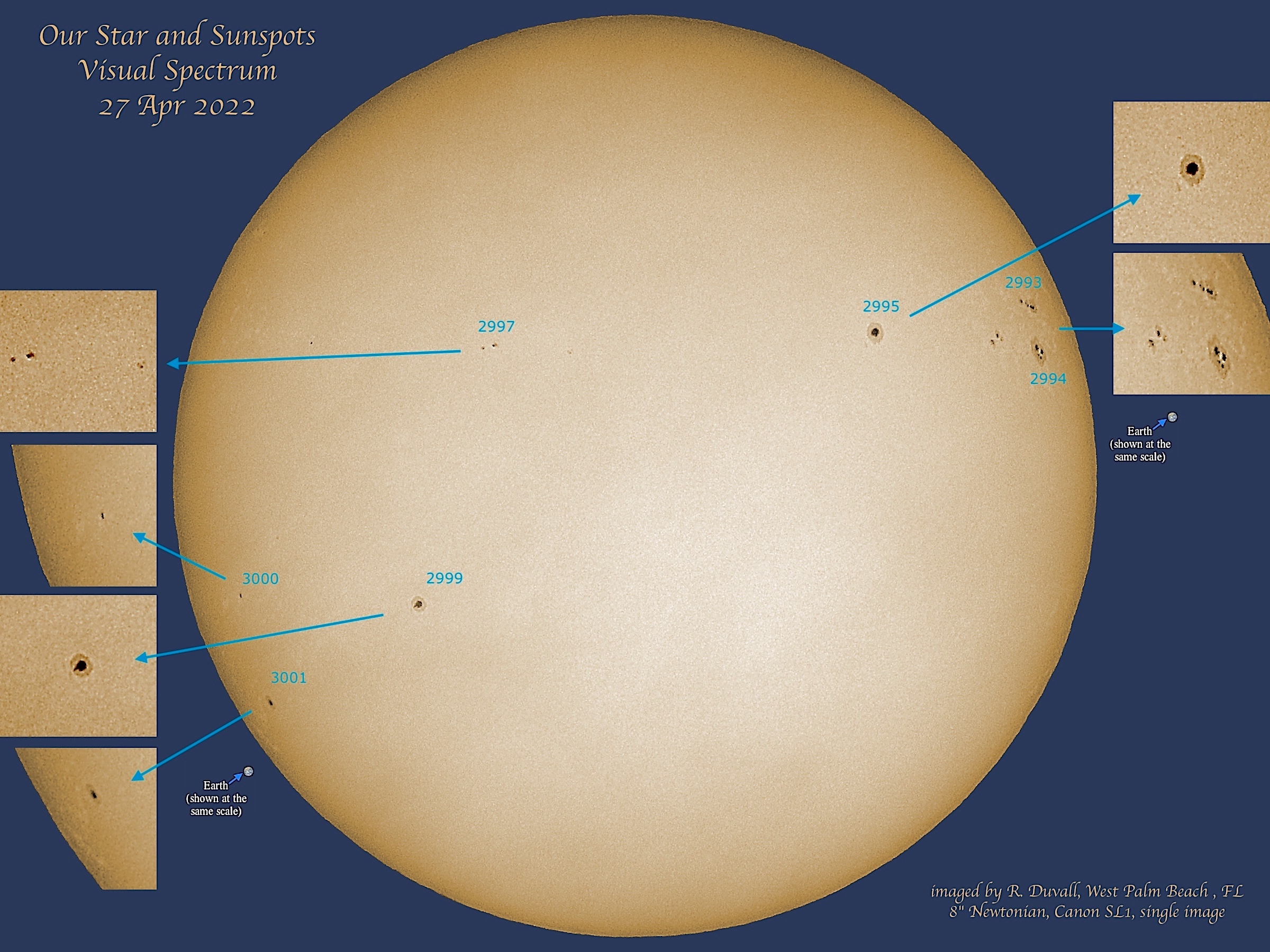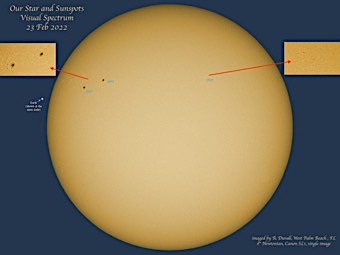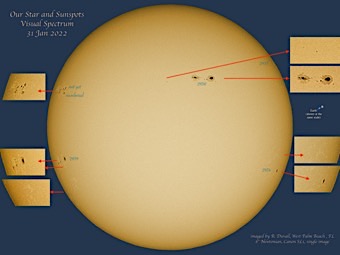|
Our Star: The Sun (Sol)
Apr 27, 2022
 |
As seen through light cirrus clouds
The sun's appearance changes daily. Using special filters, large dark spots may be safely seen traveling across the face of the sun.
These spots were first discovered around the time of Galilleo and are called sunspots.
Sunspots are very large: the average is about the same size as the Earth. A typical spot consists of a dark region called the umbra, surrounded by a lighter region known as the penumbra. They change in size and shape rapidly, first growing, then shrinking; changes can be seen over several hours study. Due to the rotation of the Sun, a sunspot near the Sun's equator will travel across the surface of the sun in about 2 weeks, if they last long enough. On average, they last about 10 days.
Sunspots are areas where the magnetic field is about 2,500 times stronger than Earth's. Because of the strong magnetic field, the temperature relative to its surroundings drops, making it appear darker. The sun's "surface" (photosphere) that we see is about 10,000 degrees F., while the sunspot umbra is about 6,300 degrees F.
Sunspots usually occur in pairs with magnetic fields of opposite directions.
Read more here
or
read more here
2022
Auto Slide Show!
Manual Slide Show!
February

Sun on
2022-02-25
|

Sun on
2022-02-23
|
January

Sun
2022-01-31
|
2021
2011
|
|
| Copyright © 2020
AstroHawk Inc. All rights reserved. Unauthorized
use prohibited.
|
|
|